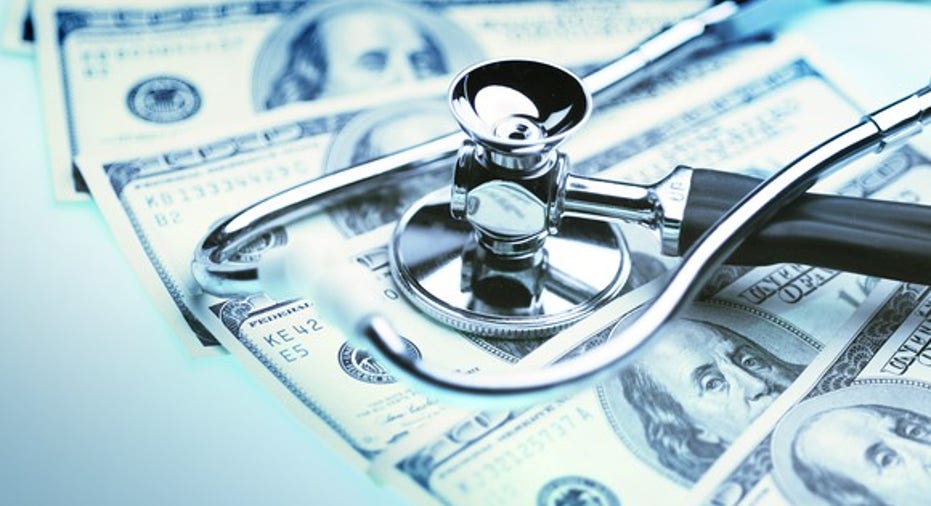5 Ways Americans Are on the Road to Better Financial Health

Image source: Getty Images.
How financially secure is the average American? Some trends are certainly troubling. Yet new research shows it isn't all bleak.
While income inequality has been steadily growing since the 1970s, and many Americansdon't have retirement savingsand even more still haven't set aside funds for their children's college tuition, a recent study found some good news. For all the reasons to worry about Americans' financial health, the FINRA Investor Education Foundation's study "Financial Capability in the United States 2016," which surveyed more than 27,000 people, found encouraging trends in several key areas.
Read on to learn five ways Americans are on the road to better financial health in 2016.
Home buyers are making higher down payments
The gold standard for a home down payment is 20% of the home's purchase price, and for good reason: If you put down anything less than that, you'll be on the hook for private mortgage insurance. Generally speaking, it's also in a homebuyer's interest to make a high down payment so that his or her monthly mortgage payments are lower. More and more Americans, according to the FINRA Foundation survey, have been making higher down payments in recent years. Last year, one in three homebuyers made down payments of 21% or more on their new homes. In 2009, less than one in four homebuyers did the same.Learn about programs available to assist homebuyers here.
More Americans have established rainy-day funds
Financial shocks happen. Whether it's a costly health problem or a sudden job loss, an emergency savings fund can help individuals and families survive trying circumstances without descending into debt. According to conventional wisdom, a rainy-day fund should cover at least three months of living expenses. Unfortunately, many Americans fall short of this standard, but the numbers are improving. Last year, 46% of survey respondents reported having three months' worth of living expenses stashed in their emergency savings funds, compared to just 35% in 2009.Learn how to start an emergency savings fund here.
Americans are having less trouble paying bills
In one of the wealthiest countries on earth, more than half of Americans find it challenging to cover their living expenses, but, as with rainy-day funds, the recent numbers are encouraging. Last year, 48% of survey respondents said they had no difficulty affording their monthly bills and expenses, up from 36% in 2009.If your monthly bills include loan payments, check outThe Alert Investor'sguide to zapping debt.
More Americans have health insurance
The percentage of survey respondents who report having health insurance jumped substantially from 78% in 2012 to 87% last year, an increase that can likely be attributed to the 2014 implementation of the Affordable Care Act. Having health insurance hasn't protected all Americans from struggling with unaffordable medical bills -- 21%, according to the FINRA Foundation survey, have unpaid, overdue medical bills. But those with insurance fared better than those without. Among respondents without health insurance, 29% reported having unpaid medical bills.
More Americans feel good about their finances
With unemployment relatively low and the stock market soaring far past its pre-recession peak, it would stand to reason that more Americans feel comfortable with their personal financial situations -- and they do. Last year, 31% of survey respondents reported feeling satisfied with their personal finances, compared to just 16% in 2009. The survey also found that those who felt satisfied were more likely to spend less than their incomes -- that is, sock some of their money into savings.If you're considering using your savings to start an investment account, check outThe Alert Investor'sguide for first-time investors.
An Alert Investor is a smarter investor.
The $15,834 Social Security bonus most retirees completely overlook If you're like most Americans, you're a few years (or more) behind on your retirement savings. But a handful of little-known "Social Security secrets" could help ensure a boost in your retirement income. For example: one easy trick could pay you as much as $15,834 more... each year! Once you learn how to maximize your Social Security benefits, we think you could retire confidently with the peace of mind we're all after.Simply click here to discover how to learn more about these strategies.
Try any of our Foolish newsletter services free for 30 days. We Fools may not all hold the same opinions, but we all believe that considering a diverse range of insights makes us better investors. The Motley Fool has a disclosure policy.



















